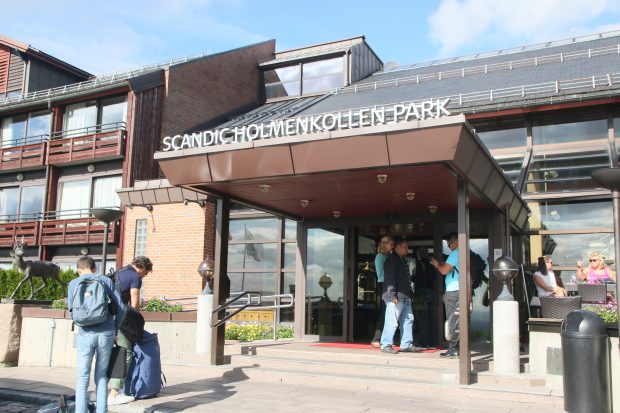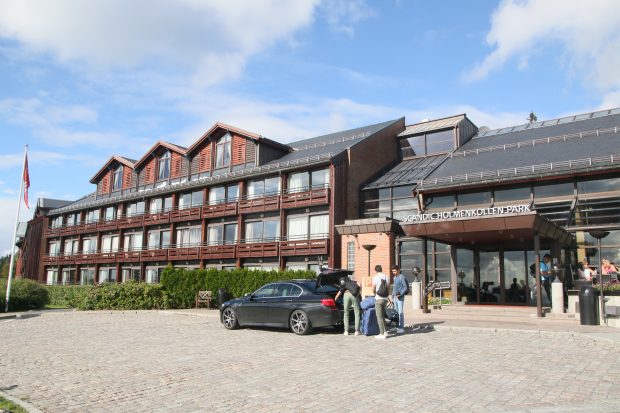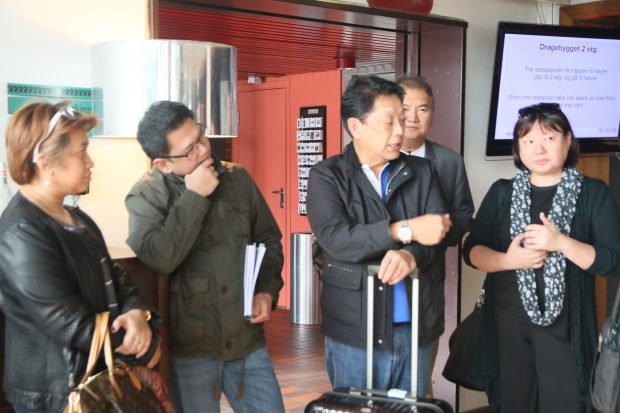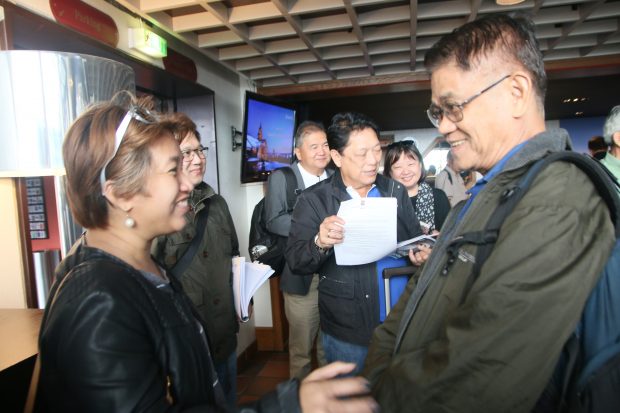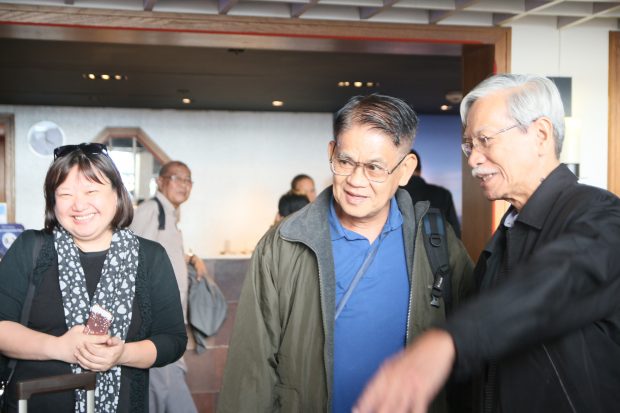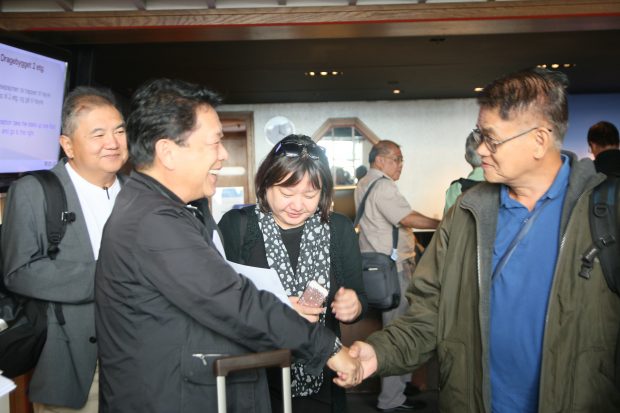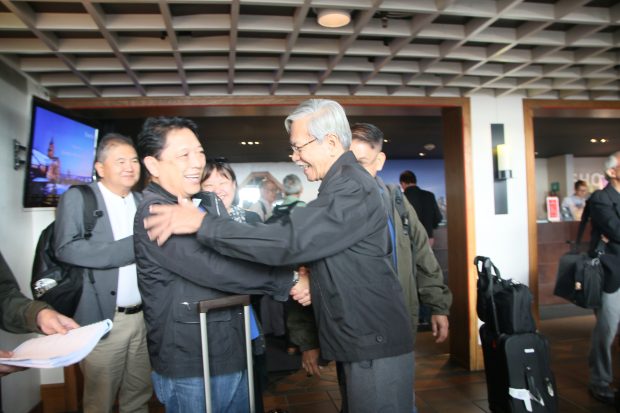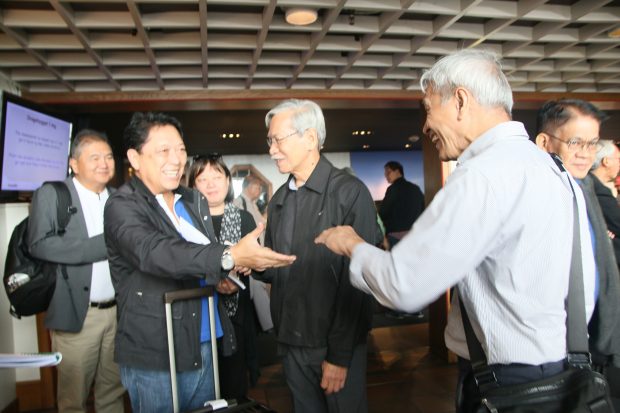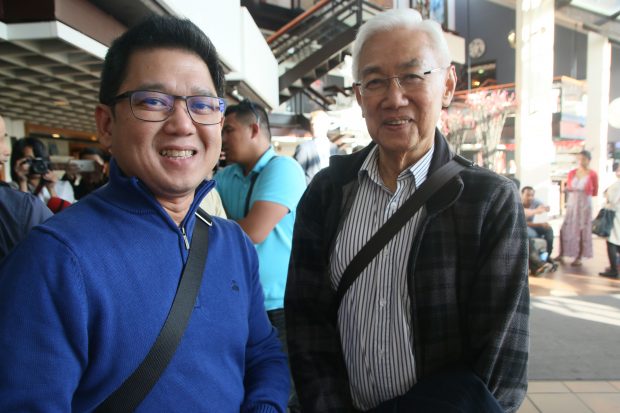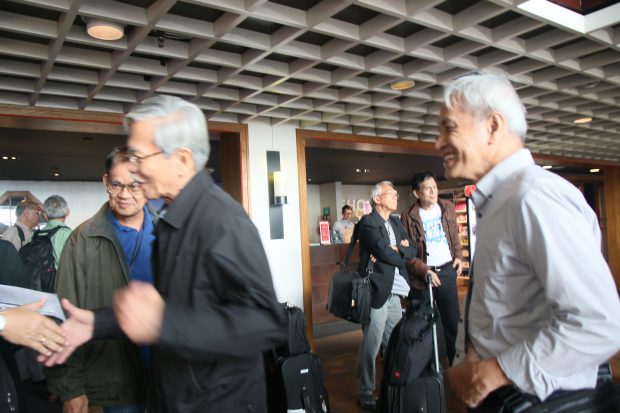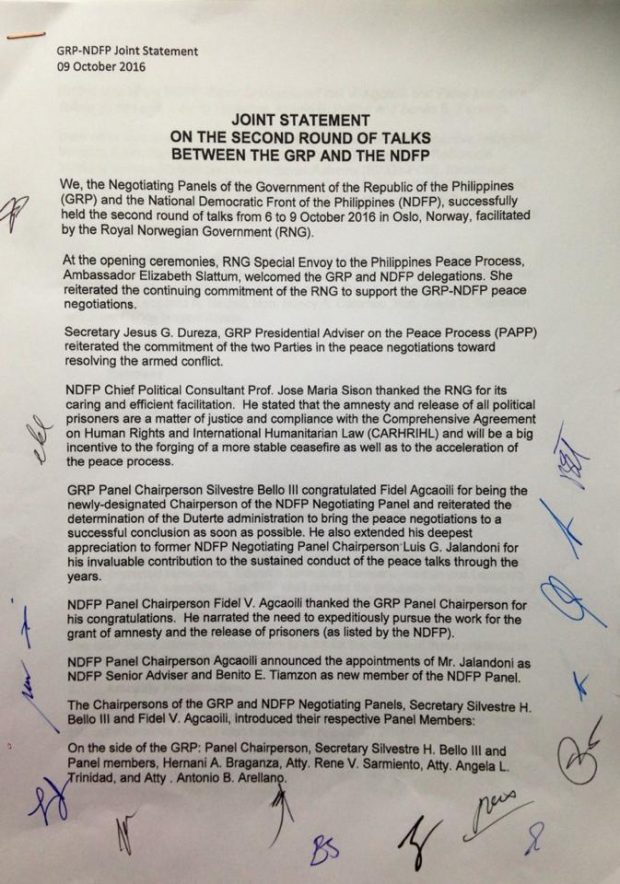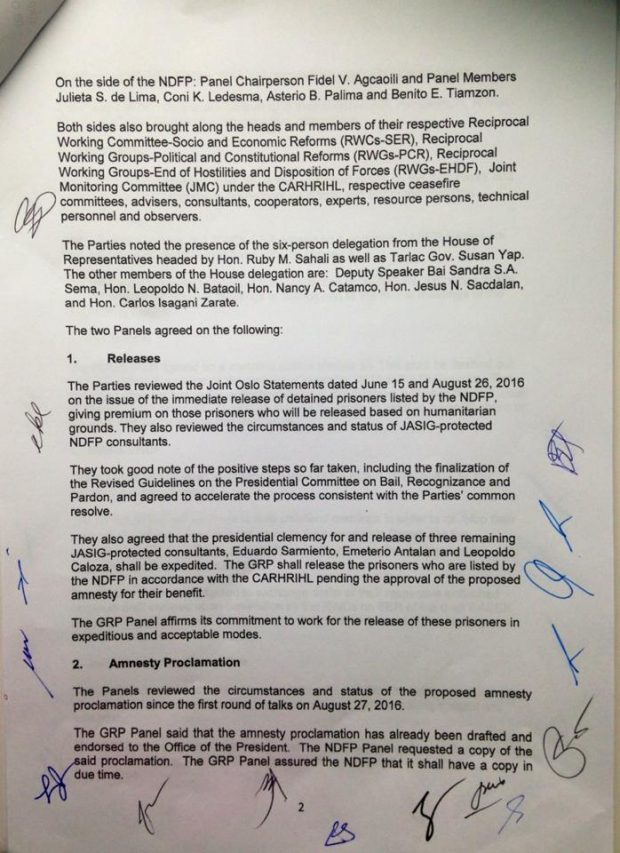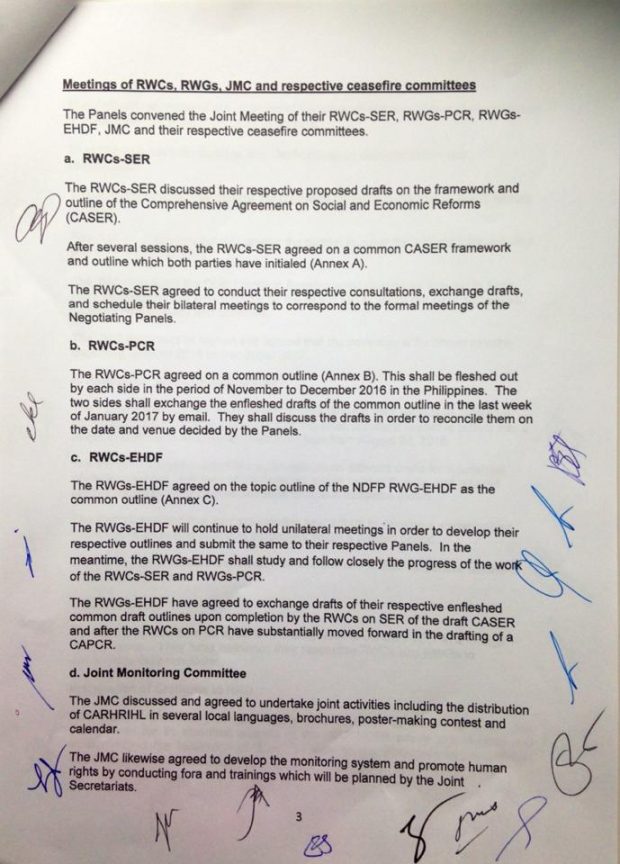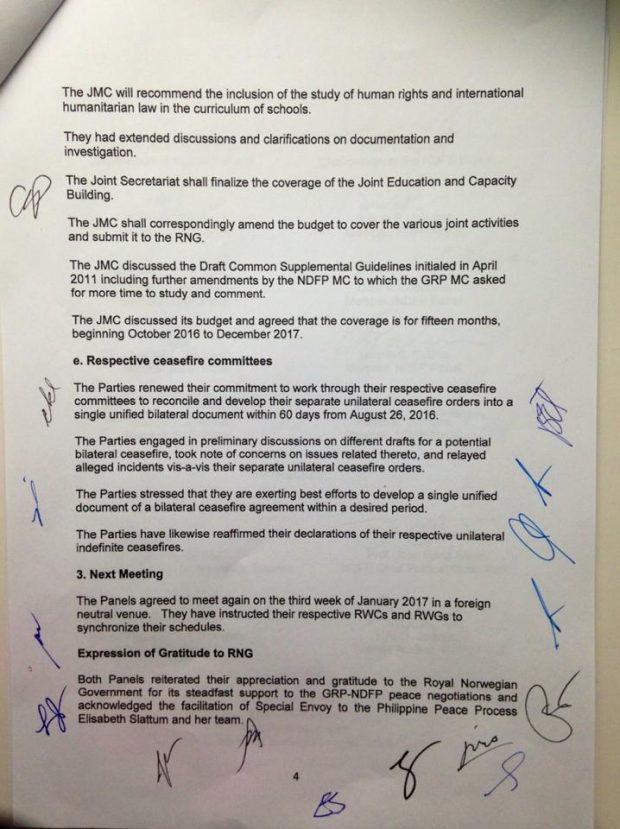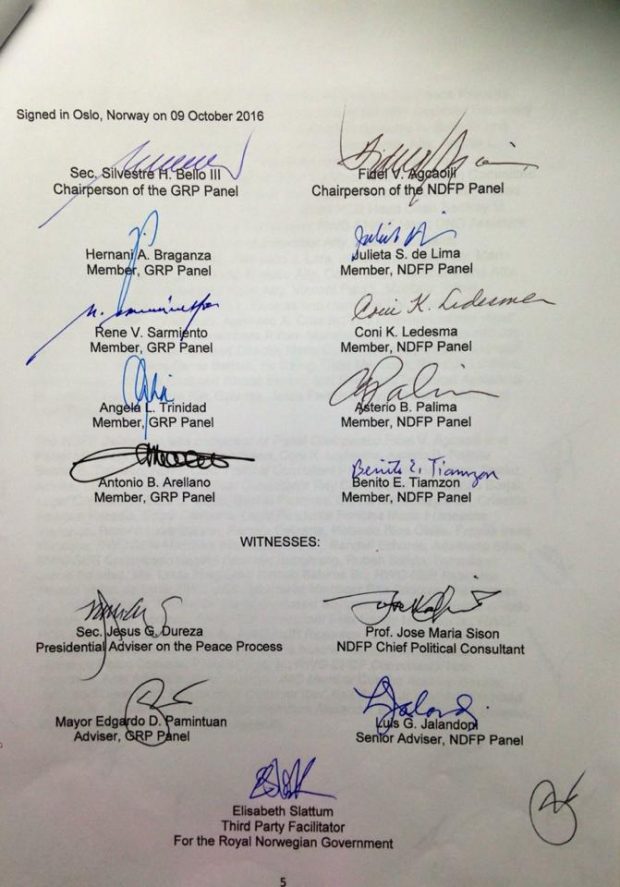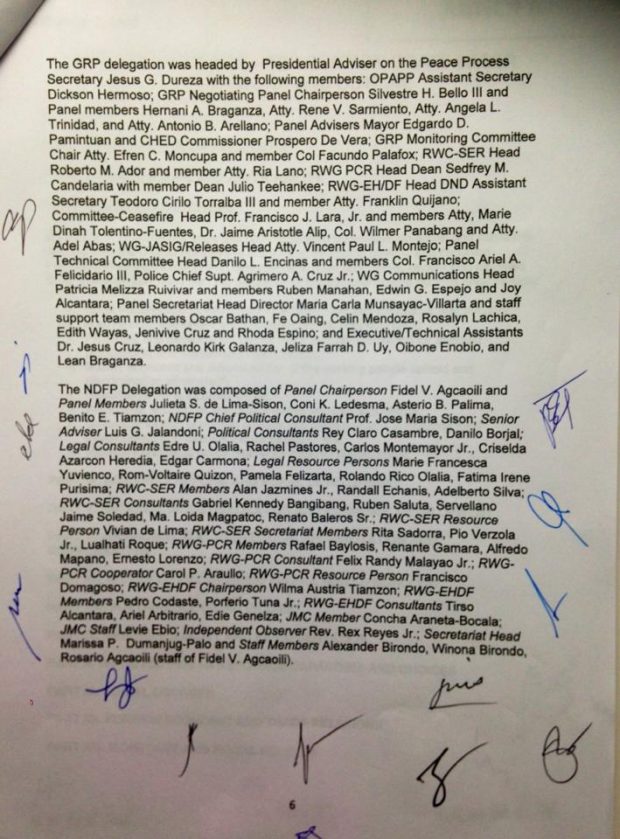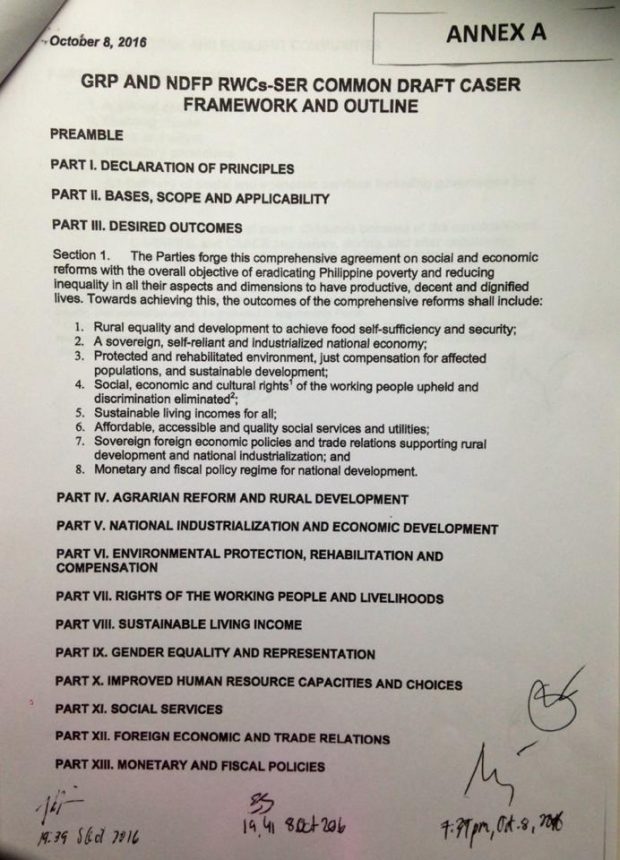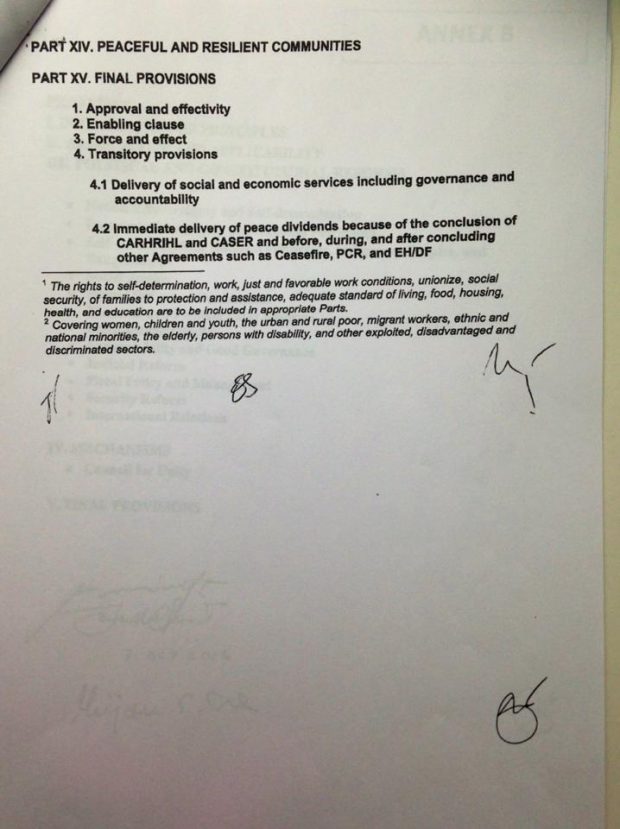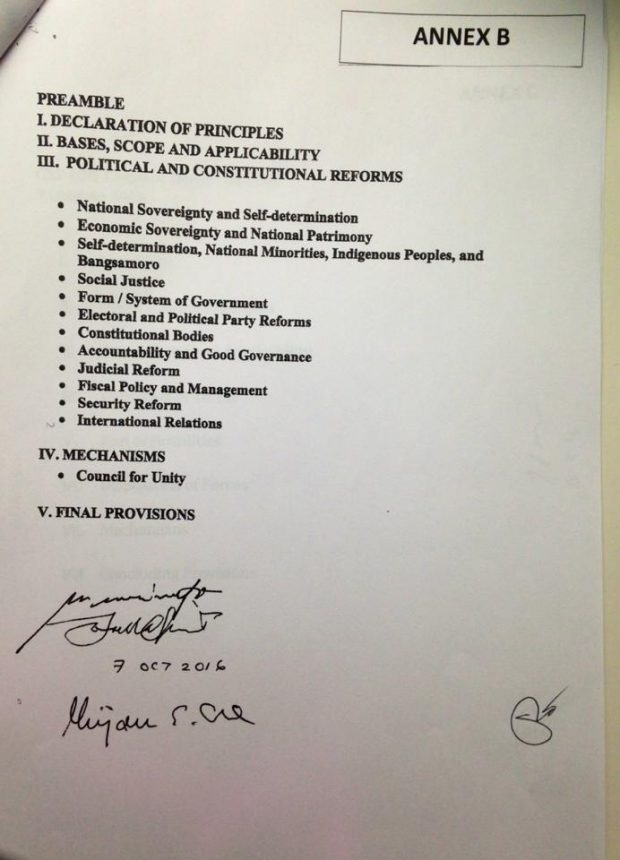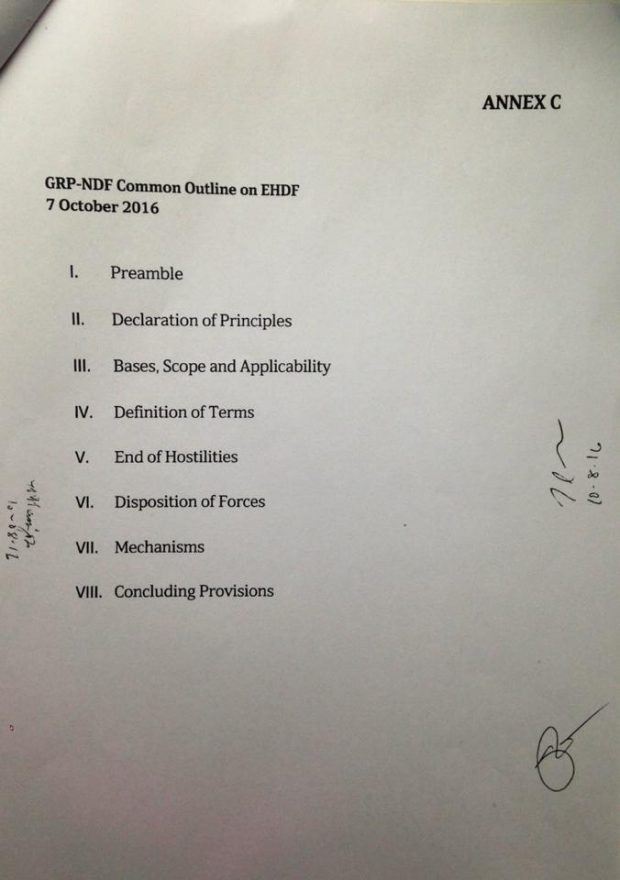Streetwise
by Carol Pagaduan-Araullo
History in the making
The past weeks have been a roller coaster ride for many of us – human rights activists working hard for the release of political prisoners, the political prisoners themselves and their loved ones, peace advocates mobilizing public support for the resumption of peace talks between the Government of the Republic of the Philippines (GRP) and the National Democratic Front of the Philipines (NDFP) and no doubt even the two negotiating panels.
Will the first batch of political prisoners, 22 consultants of the NDFP peace panel, be released in time for the start of the formal peace talks this 22 August? Or will the talks be postponed once more to give time for their release repeatedly hamstrung by legal requisites and bureaucratic delay?
Will the exchange of harsh words between President Rodrigo Roa Duterte and his erstwhile professor, founding chairperson of the Communist Party of the Philippines and now NDFP Chief Political Consultant, Jose Maria Sison, escalate further and jeopardize the peace talks? Or will their political maturity and commitment to a higher good rule the day?
A week ago, while monsoon rains lashed the country, the political storm clouds began lifting. President Duterte invited NDFP political and legal consultants to the Palace along with the GRP panel. What ensued was described by the NDFP consultants as light, cordial, humor-laden and a breakthrough for the political prisoners’ release with direct, unequivocal instructions from the president to speed things up. He also repeated his previously stated stand against the filing trumped-up criminal cases against Leftist leaders and members as the previous administrations of Arroyo and Aquino III were wont to do.
The grant of bail for the NDFP consultants and two others (for humanitarian reasons), the release orders, the passports and visas and the allow departure orders soon followed one after the other. Not fast enough for those pining for their loved one’s release and the human rights activists who were burning both ends of the candle to fulfill all the legal paperwork and requirements. And a bit too close to call for the Oslo talks just days away.
But in the end, it was well worth it. The beaming smiles, teary eyes, clenched fists, hearty handshakes, tight hugs and never-ending group photos attest to the outpouring of relief and joy at the first round of releases of political prisoners. The NDFP perceives this to be in the spirit of what President Duterte promised to NDFP emissaries even before he was inaugurated; that he would declare a general amnesty for thus unjustly incarcerated for their political beliefs, subject to the concurrence of Congress, in order to lay the ground for successful talks and the final resolution of the four decades-long armed conflict between government and the revolutionary movement.
The releases augur well for the peace talks, a qualitative leap in confidence-building that was soon reciprocated with the declaration of a unilateral ceasefire by the CPP-NPA-NDFP to take effect a day before and a day after the first round of formal peace talks in Oslo, Norway. As we write, Secretary Jesus Dureza, Presidential Adviser on the Peace Process, has announced that President Duterte has restored the GRP’s unilateral ceasefire as well starting midnight of August 21 “to last as long as necessary to bring peace to the land”.
In truth, we have not seen such a public display of happiness, optimism and determination to work towards the goal of a just and lasting peace as now.
Good will, hard work, imagination, cooperation and creative language engineering will be required from both sides as they keep their focus on the immediate objective of success in the first round of formal talks as well as the long-term goal of inking bilateral agreements on the remaining substantive agenda: economic and social reforms; political and constitutional reforms; and end of hostilities and disposition of forces.
From experience, there will be unavoidable and avoidable complications, intended and unintended distractions, compounded by miscommunications and missteps. Each side will be faced with the huge challenge of forging ahead while avoiding pitfalls, especially coming at loggerheads on major and even minor issues that could develop into an extended impasse.
Each side will be constantly under pressure by public opinion and their respective constituencies to try to be as accommodating as possible on the negotiating table while being firm on principle, as each side sees it. They must appreciate the objective constraints and even the subjective limitations of each side while working towards reaching agreements that will stand the test of the people’s judgement as well as the judgement of history. And always, always they must keep in mind and take to heart what is good for the majority of the Filipino people, even as each Party will have its own interpretation of what exactly that means.
Many times we have been asked how far we think the peace negotiations can go, what really is possible under the Duterte administration that has vowed to be “inclusive” and the harbinger of “change” but is in fact dominated still by the political and economic elite as reflected in Cabinet appointments to key positions and his majority backing in the Senate and House of Representatives.
How far can progressive, pro-people and nationalist reforms pushed by the NDFP advance through the peace talks even as the local oligarchy and foreign monopoly capitalist firms inevitably start to mount stiff opposition, the US and other imperialist powers plot interventionist moves, and the military, police and other state security forces threaten a coup d’etat against President Duterte?
In the past, even peace advocates and other progressives could only reply with qualified optimism. This time, there is reason for more optimism.
In a few days, the entire NDFP negotiating panel which has been based in Europe for at least three decades will be able to confer directly with a dozen or so consultants who mostly have been in the field all these time before their arrest. The firsthand and face-to-face sharing of experiences, views, situationers and proposals will be unprecedented and will certainly enrich the information-and-knowledge stock of the NDFP panel and sharpen and fine-tune its own proposals and positioning in the negotiations, especially with respect to the substantive agenda on reforms. This could considerably facilitate the discussions on the negotiating table itself and raise the probability of arriving at mutually acceptable propositions.
Indeed while it is still anyone’s guess, efforts to still the guns of war in exchange for a just and lasting peace based on addressing the underlying roots of armed conflict must be sustained, nurtured and even defended by all concerned, that means by each and every one of us.
For social reformers, political activists as well as peace and human rights advocates this translates to pressing on with the struggle for substantial and fundamental reforms in the socio-economic, political and cultural spheres so that the agreements on the substantive agenda are amplified, enriched and bolstered thereby increasing their chances of being upheld and implemented by both Parties. #
Published in Business World
22 August 2016
